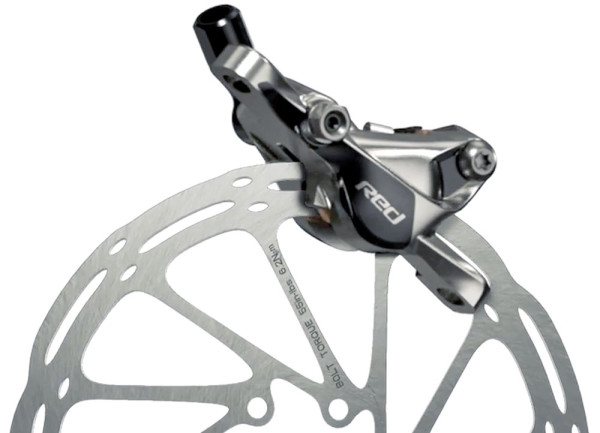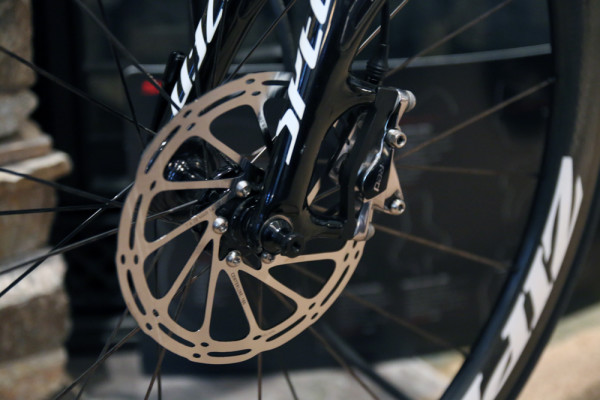
In a not so surprising move, the Union Cycliste International (UCI), in conjunction with the World Federation of the Sporting Goods Industry (WFSGI), announced today that disc brakes will be allowed in a limited capacity within the context of professional road racing beginning in August for this year, with plans for continued testing moving into 2016. The goal is to extend the introduction of disc brakes at every level of road cycling, though disc brakes are already allowed within USA Cycling road events with the exception of UCI qualifying or UCI events in the United States. Get the deets after the jump.
The decision comes after “numerous consultations with different stakeholders” and testing will consist of professional road teams being able to utilize disc brakes in two race events, in August and September of 2015 and is planned to continue through the 2016 season. If testing is successful throughout the duration of testing, the technology will be allowable for the 2017 UCI WorldTour and, eventually, will be allowable at all levels.
Many manufacturers have been developing, or have ready in the wings, elite level disc or disc-compatible road product to introduce to the public in anticipation of such a policy change. However, there remain challenges of neutral and team support wheel and technical infrastructure in the case of mixed brake fields, just as there remain questions of safety of a mixed braking capability field- or of hot rotors cutting through racers’ arteries like a hot knife through butter in a mass crash scenario.
The decision isn’t being taken lightly. From Brian Cookson, UCI President: “Although disc brakes have been used for around a decade in mountain biking and for the last two years in cyclo-cross, their introduction to road cycling must be carefully studied in collaboration with all those who are directly concerned. That includes riders, teams and manufacturers. This step is part of the UCI’s desire to encourage innovation in order to ensure cycling is even more attractive for spectators, riders, bike users and broadcasters.”
The manufactures represented by Robbert de Kock, Secretary General of the WFSGI, look forward to the opportunity that the new technology represents, stating, “The industry is delighted by this news and also thanks the UCI for the very positive collaboration. This decision will further develop innovation and create new possibilities for the bicycle industry as well as additional performance for the riders. There is still some fine tuning to do on detailed requirements for the procedure, but it is very exciting to finally have reached this decision. The remaining open topics such as neutral race support or the UCI and Teams protocol will be tackled soon.”
For the full press release, and for further UCI news, visit the website.

